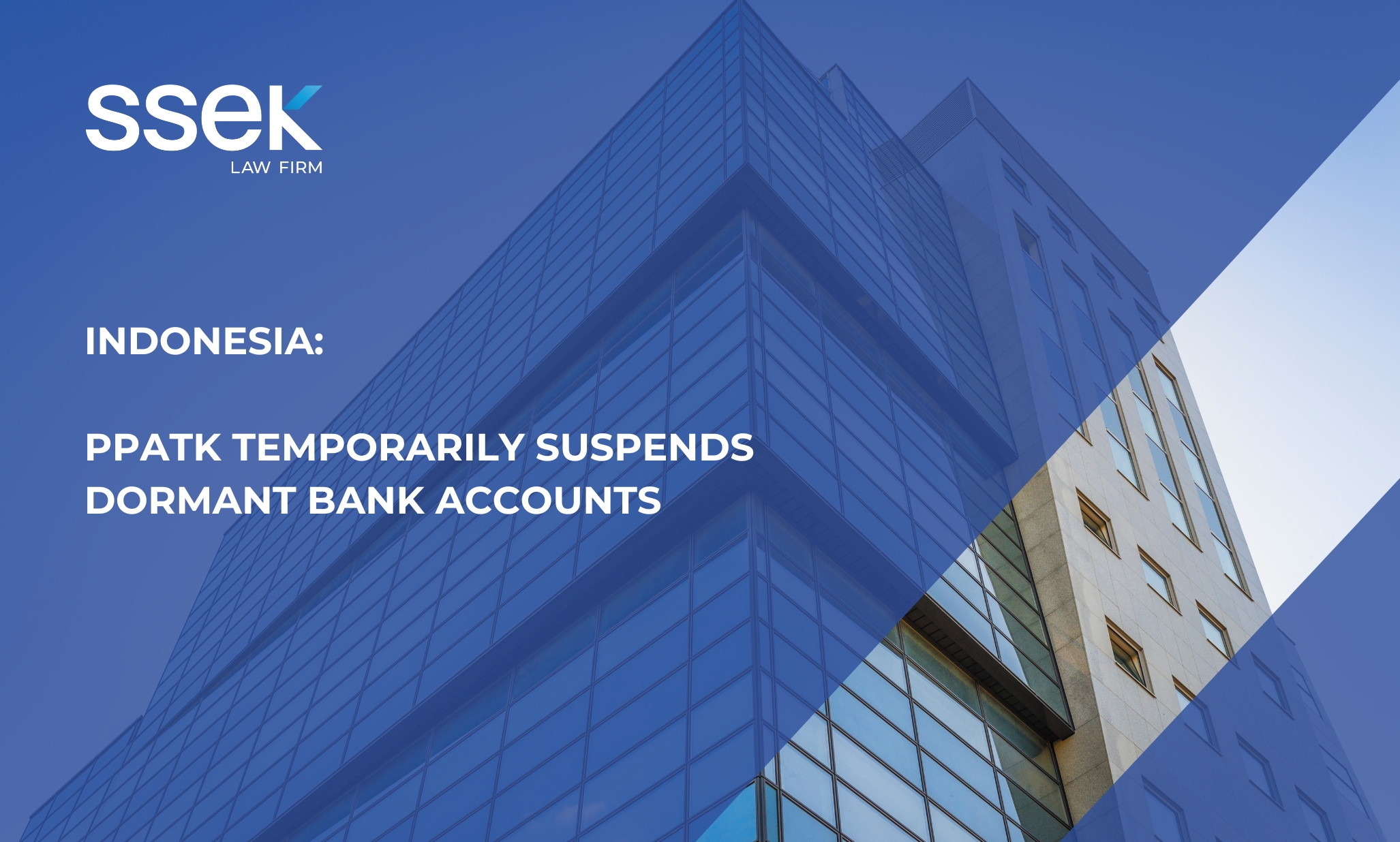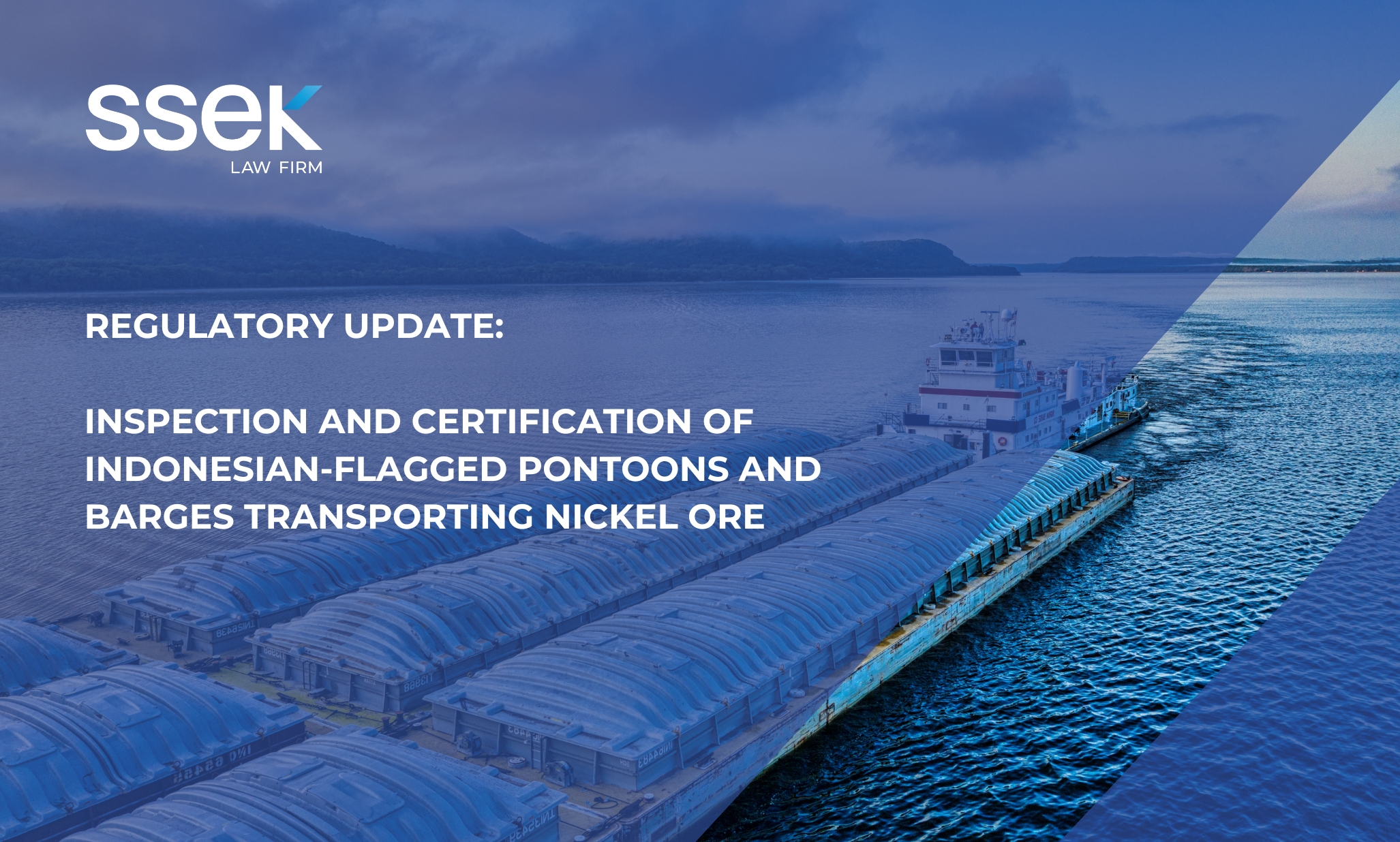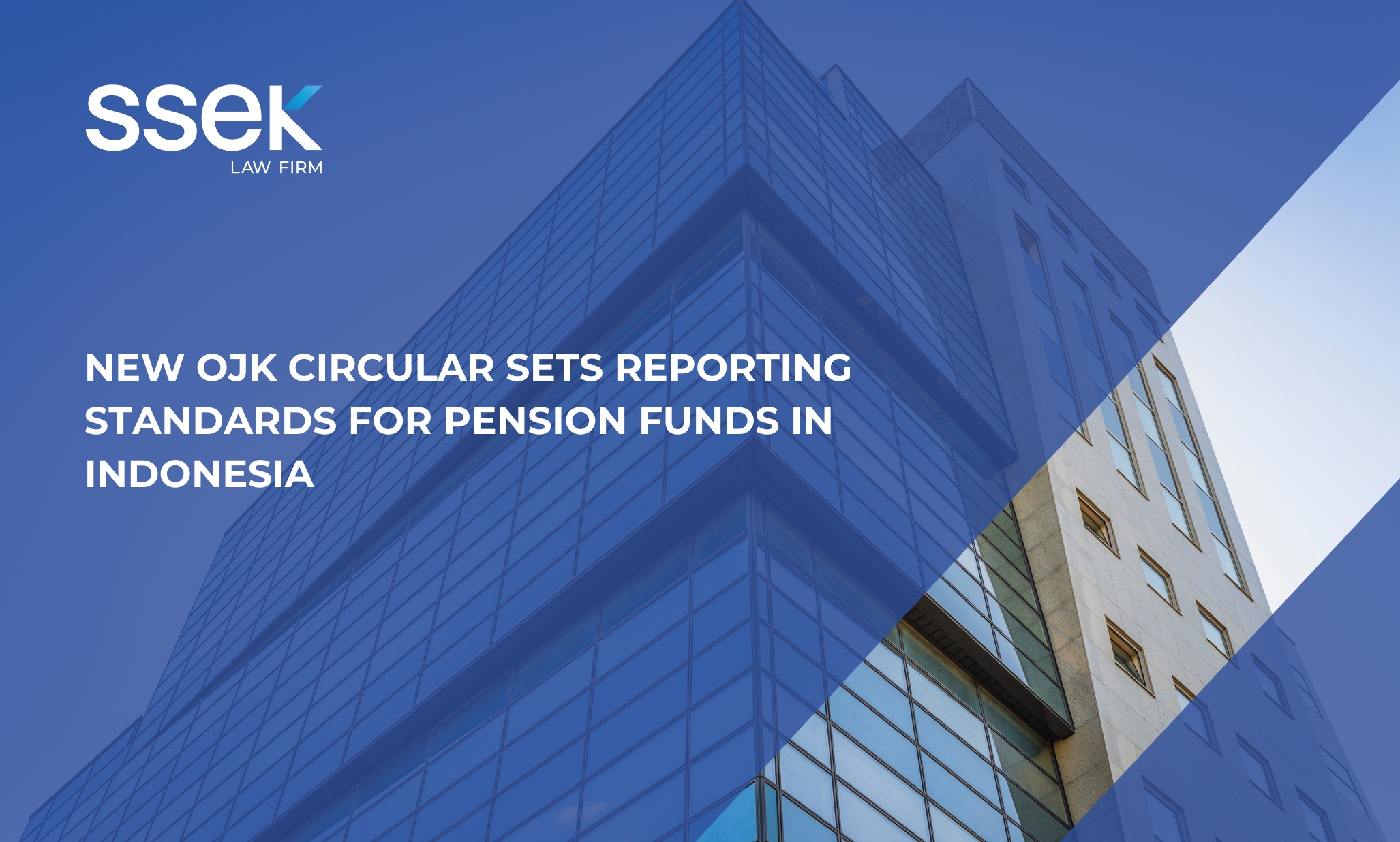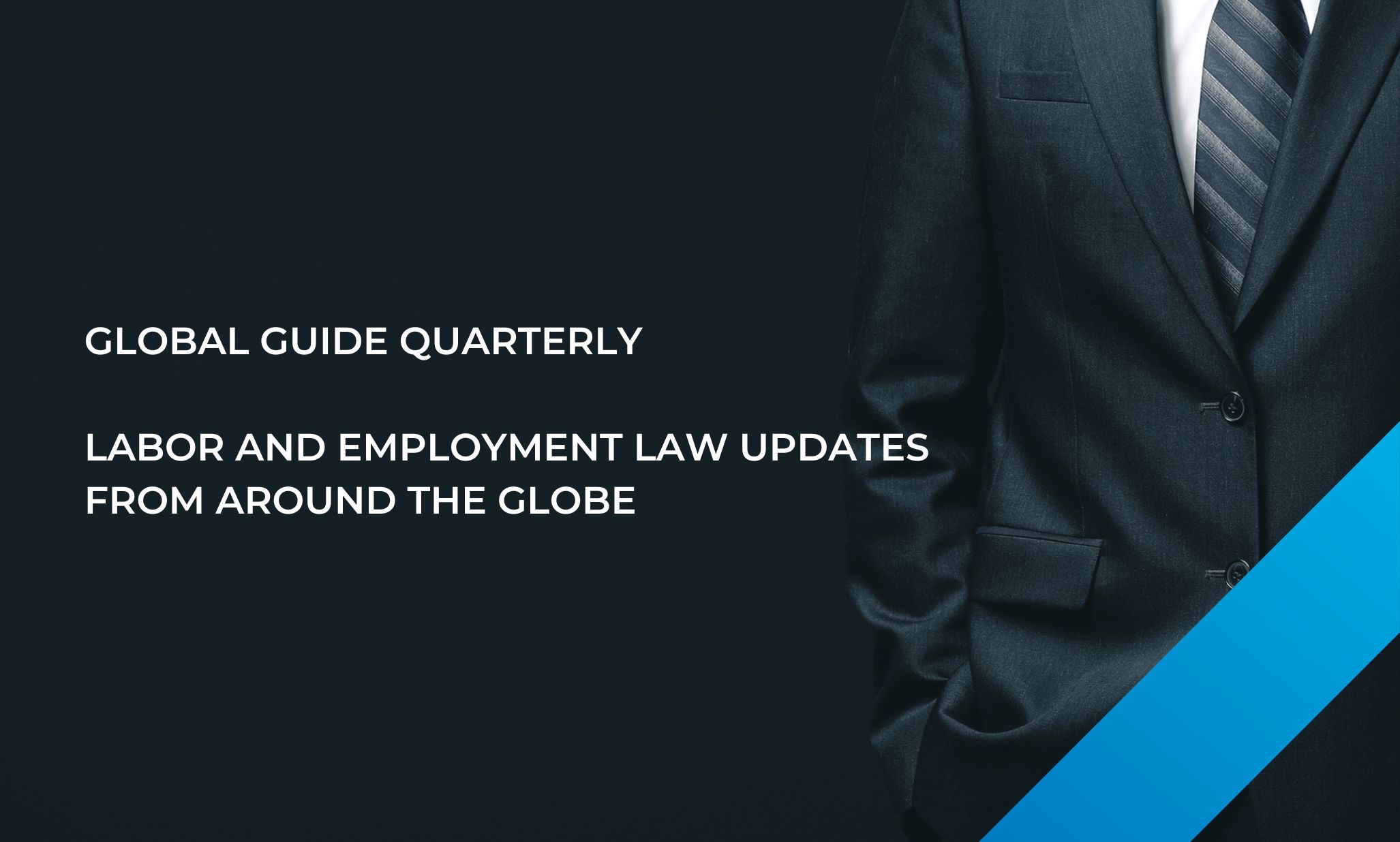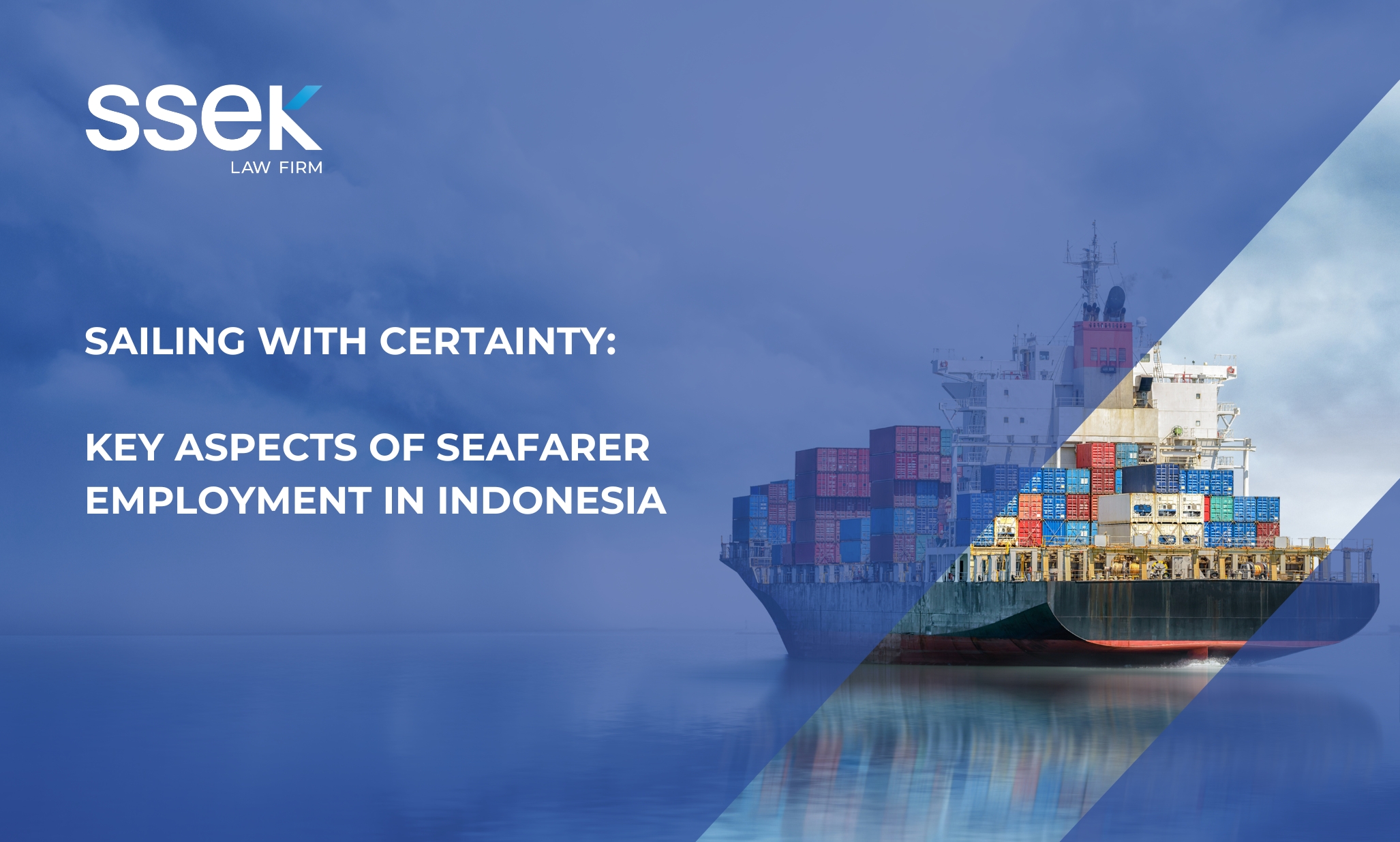


As one of the world's largest archipelagic nations, Indonesia relies heavily on its maritime workforce to support domestic and international shipping activities. To ensure clarity, legal protection, and fair working conditions for seafarers, the Seafarers Employment Agreement, or Perjanjian Kerja Laut (“PKL”), serves as a cornerstone of maritime labor regulation.
This article explores key aspects of the PKL, including its mandatory clauses, comparisons with general employment agreements, and specific considerations for agreements involving ship masters.
Key Aspects of PKL
Compared to general employment agreements, the PKL sets specific rules regarding the contracting parties and the contents of the agreement, as it governs the unique conditions of on-board employment. A PKL is a specialized individual employment agreement entered into between a sea transportation company or a licensed ship crew agency and a seafarer who will be employed as a ship crew member.
The PKL is subject to distinct regulatory frameworks, primarily Government Regulation No. 7 of 2000 regarding Seafarers (dated April 21, 2000) (“GR 7/2000”) and Ministry of Transportation Regulation No. 59 of 2021 regarding the Implementation of Service Businesses Related to Sea Transportation (dated July 7, 2021) (“MOT Reg. 59/2021”).
With respect to the form of the PKL, Article 107 (1) of MOT Reg. 59/2021 provides two options:
- Fixed-Term Employment Agreement, or Perjanjian Kerja Waktu Tertentu (“PKWT”), which is entered into for a specific duration or for the duration of a particular voyage; and
- Permanent Employment Agreement, or Perjanjian Kerja Waktu Tidak Tertentu (“PKWTT”), which is intended for ongoing employment until termination by either party.
However, ship crew members may serve on board for a maximum of 12 months, followed by one month of leave or rest, before resuming duty on a regular rotation.
After the parties enter into a PKL, the sea transportation company or ship crew agency must apply for PKL approval and crew mustering (penyijilan awak kapal) to the harbor master (syahbandar).
Required Clauses
Article 107 (4) of MOT Reg. 59/2021 stipulates the minimum required clauses that must be included in a PKL, as follows:
- Identity of the parties;
- Place and date of the agreement;
- Crew placement;
- Wages or other remuneration, including the specified amount or the formula used to calculate it;
- Paid annual leave and holidays, including the specified amount or the formula used to determine them;
- Method of wage payment, including dates, currency, and any special conditions;
- Working hours and rest periods on board; "
- Work provisions, including that the duration of service on board shall not exceed 12 months;
- Extension, which is applicable if the seafarer remains on board beyond the initial voyage;
- Termination of employment;
- Health protection and social security, including medical care, coverage for injury, illness, or occupational accidents, and compensation for disability or death;
- Repatriation;
- Complaint procedures and disciplinary provisions;
- Reference to the collective labor agreement (PKB) (if any);
- Other provisions governing detention situations due to piracy, armed robbery against the vessel, or navigation in conflict-prone areas, etc.; and
- Signatures of the parties and the stamp of the harbor master (syahbandar) for acknowledgment purposes.
Article 108-111 of MOT Reg. 59/2021 stipulates several additional clauses, as follows:
- Choice of Language – The PKL must be in Bahasa Indonesia and English for foreign-flagged vessels.
- Copies – Copies of the PKL must be provided to both parties and the ship master.
- General Prohibition – Any form of discrimination, including gender-based discrimination, intimidation, threats, harassment, and physical or mental abuse, is strictly prohibited in all aspects of work on board.
- Amendments – Any amendment to the PKL must be reported to the harbor master and must not reduce the standards set in the original agreement.
Dispute Resolution – Disputes shall be resolved amicably, and if unresolved, through the labor court.
Comparison with General Employment Agreements
Compared to general employment agreements regulated under Government Regulation No. 35 of 2021 concerning Fixed-Term Employment Agreements, Outsourcing, Working Time and Rest Periods, and Termination of Employment (dated February 2, 2021) (“GR 35/2021”), the PKL differs in several key aspects, including:
| Aspects |
General Employment Agreements |
PKL |
| Special Requirements | N/A |
Seafarers are required to hold certifications appropriate to the type of vessel on which they serve.
|
| Overtime Hourly Rate | Higher than the PKL, with a minimum of 1.5 times the normal hourly rate. |
Lower hourly rate, capped at (1.25*190) times the normal hourly rate according to Article 22 of GR 7/2000. |
| Establishment by Third Party |
Fixed-Term Employment Agreements (PKWT) are registered with the Ministry of Manpower only. |
PKWT for seafarers must be registered with the Ministry of Manpower and established by the harbor master for crew mustering.
|
| Severance Payment |
Several grounds for termination require severance payment, in accordance with Article 36 of GR 35/2021. |
In addition to the obligations under Article 36 of GR 35/2021, severance payments must also be provided in cases of vessel wreck or sinking, as regulated by Article 27 of GR 7/2000.
|
PKL for Ship Master
The position of ship master is designated under a Permanent Employment Agreement (PKWTT) PKL rather than a Fixed-Term Employment Agreements, as the ship master play a core role in the operational continuity of shipping activities. This principle was affirmed in a Supreme Court decision dated September 26, 2024, in the case of Rully Yanto (the “Ship Master”) vs. PT Maritim Barito Perkasa (the “Shipping Company”), which ruled in favor of the Ship Master.
In this case, the Ship Master was employed under a PKWT PKL, which was unilaterally terminated by the Shipping Company. Following the termination, the Ship Master filed a claim for severance payment. The panel of judges emphasized that the ship master’s role constitutes a core function in the shipping business and therefore should not be subject to a fixed-term employment agreement. A PKWT is intended for employment of a temporary nature or for the completion of a specific task, whereas a ship master is essential to the ongoing operation of a shipping company. As a result, the court ruled that the PKWT PKL had effectively been converted into a PKWTT, entitling the Ship Master to severance rights accordingly.
Updates on PKL Dispute Resolution
The Supreme Court of Indonesia has issued Circular Letter No. 2 of 2024 (“SEMA No. 2/2024”), providing guidance on the resolution of disputes related to PKL in the labor court.
Under SEMA No. 2/2024, PKL disputes should primarily be resolved with reference to the Indonesian Commercial Code (“KUHD”) and Law No. 17 of 2008 concerning Shipping, as amended most recently by Law No. 66 of 2024 (“Shipping Law”), along with its implementing regulations. If the issue is not addressed by these laws, then Law No. 13 of 2003 concerning Manpower, as amended by Law No. 6 of 2023 on Job Creation (“Manpower Law”), shall apply.
SEMA No.2/2024 also clarifies the proper jurisdiction for filing PKL-related disputes. These may be submitted to the labor court based on either of the following:
- The location where the PKL was executed and certified by the harbor master; or
- The last place of work of the ship crew member.
Conclusion
Conclusively, the PKL plays a vital role in safeguarding the rights and obligations of maritime workers in Indonesia, provided a structured legal framework tailored to the unique nature of work at sea. It seeks to ensure fair treatment through mandatory contractual clauses, protections against unfair dismissal, and provisions for severance payments in exceptional maritime situations.
Compared to general employment agreements, there are four notable differences: special requirements, overtime hourly rate, establishment by a third party, and severance payments. Special for ship masters, a recent court decision reaffirms the principle that essential roles like ship master must be engaged under a permanent employment arrangement, recognizing their central role in the business continuity of shipping activities. And PKL-related disputes are to be resolved in the labor court.
This publication is intended for informational purposes only and does not constitute legal advice. Any reliance on the material contained herein is at the user’s own risk. All SSEK publications are copyrighted and may not be reproduced without the express written consent of SSEK.




